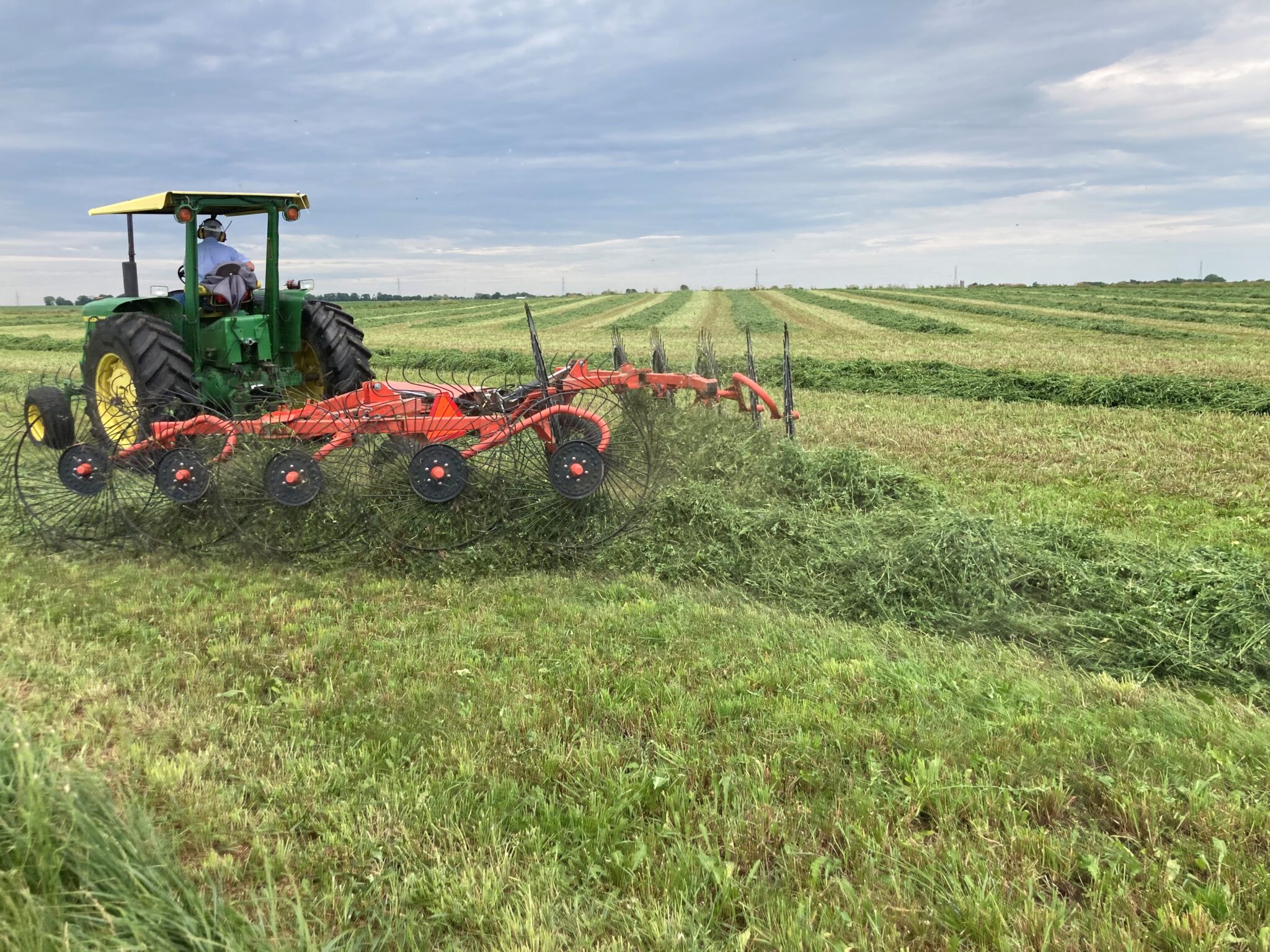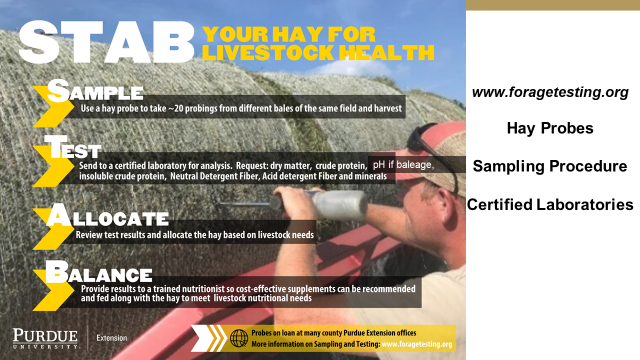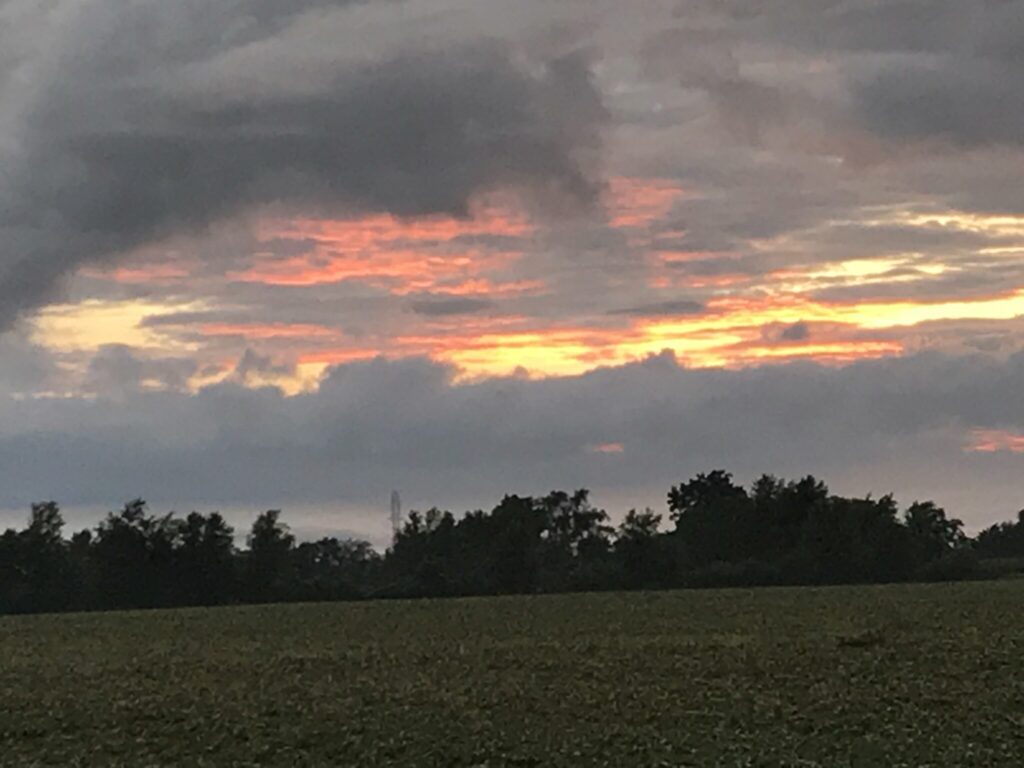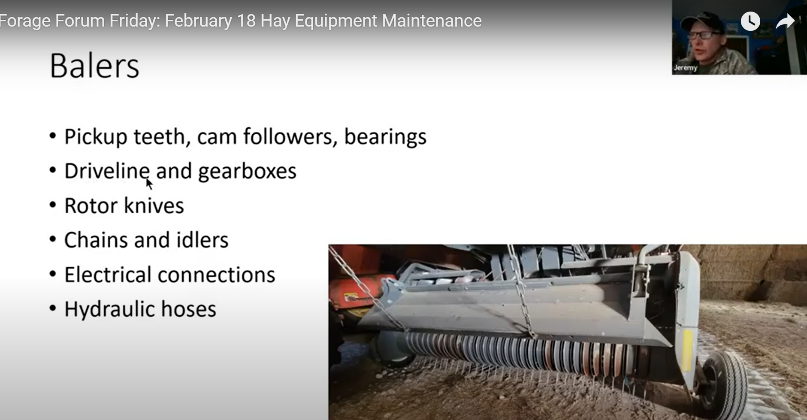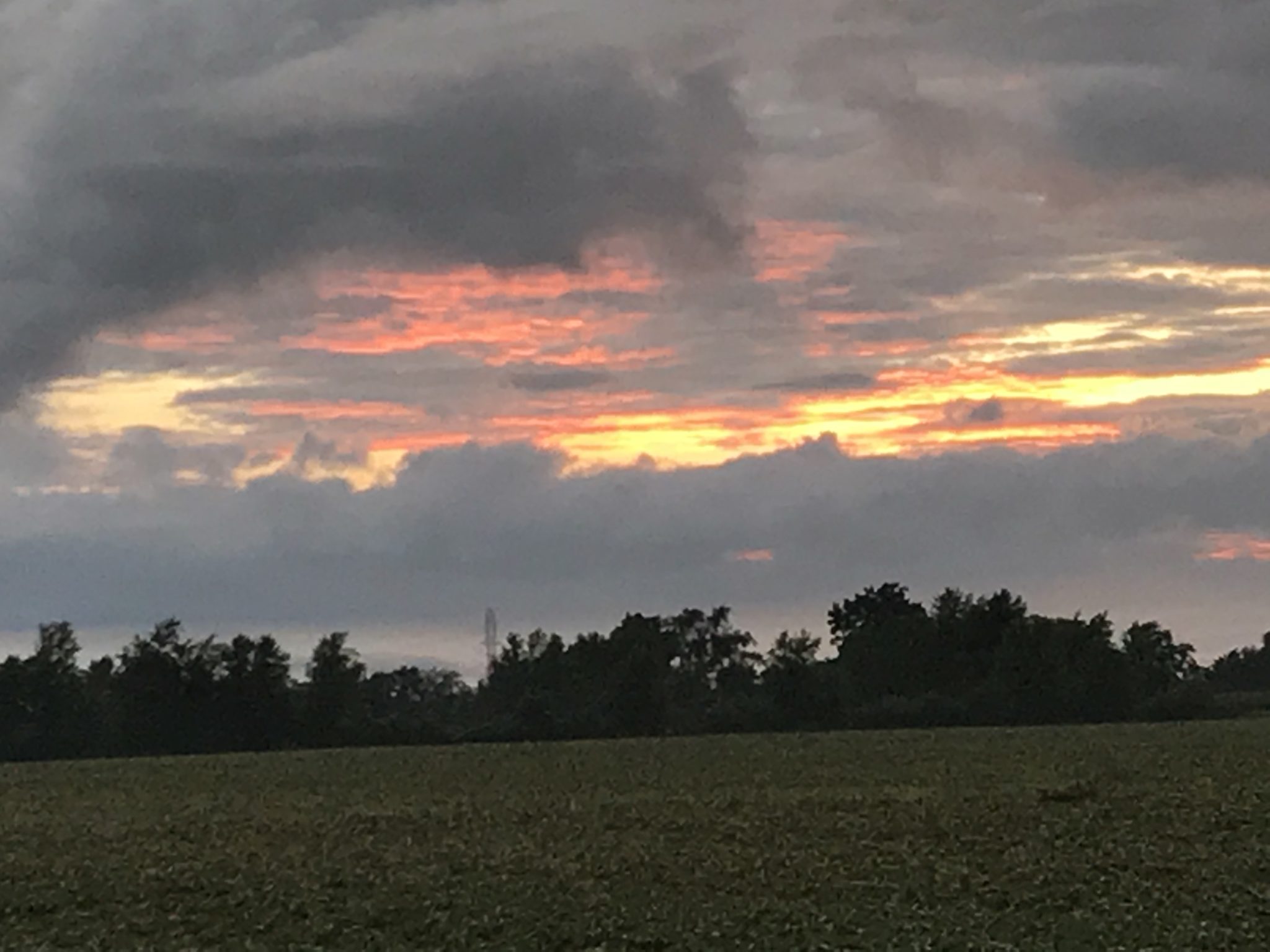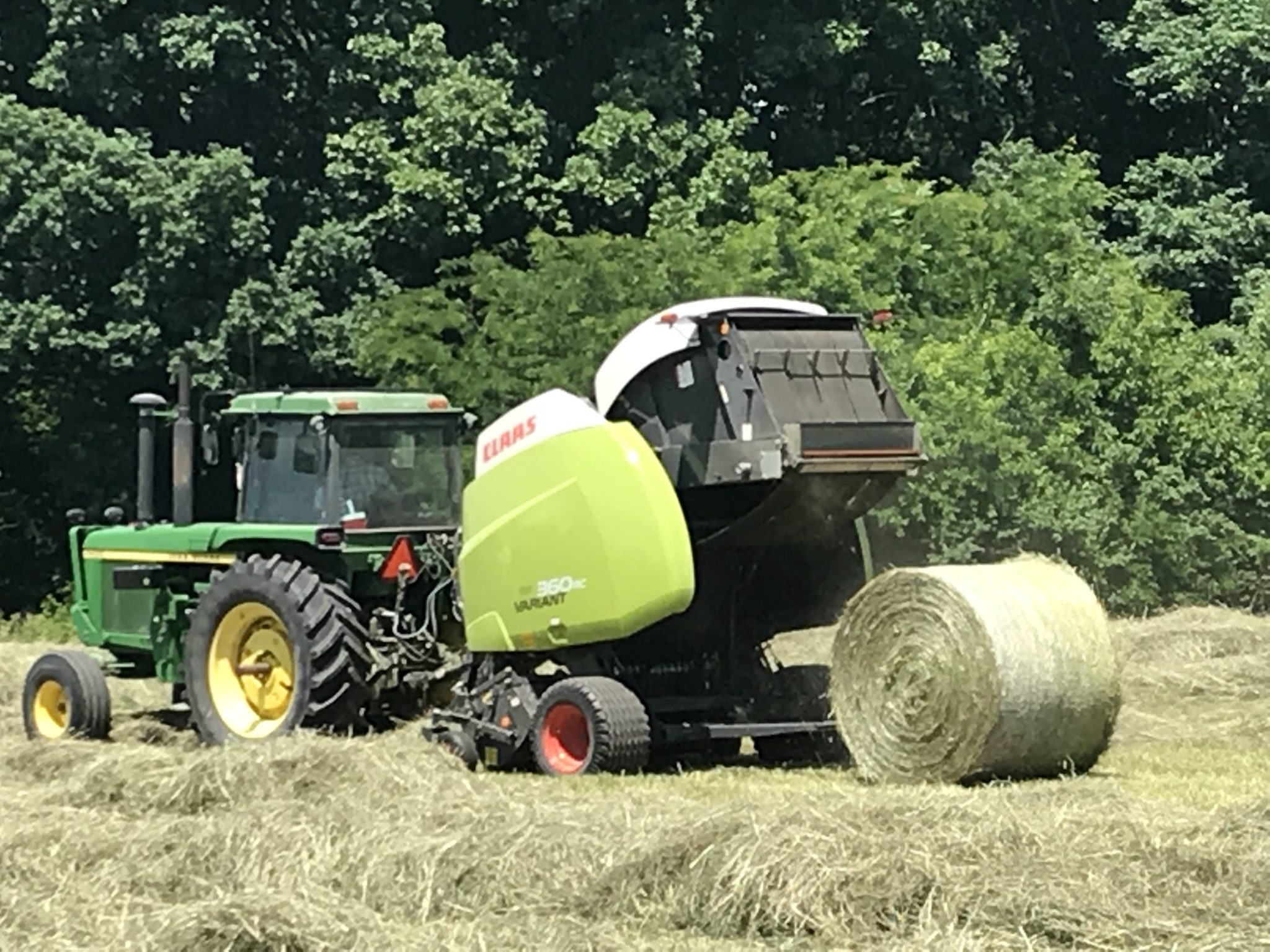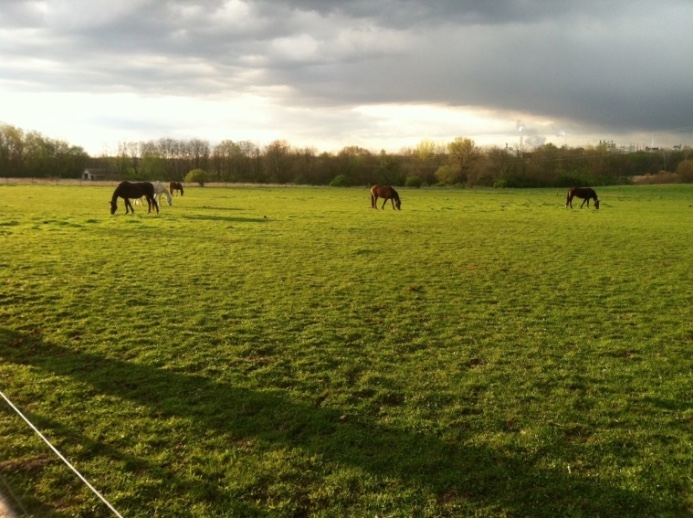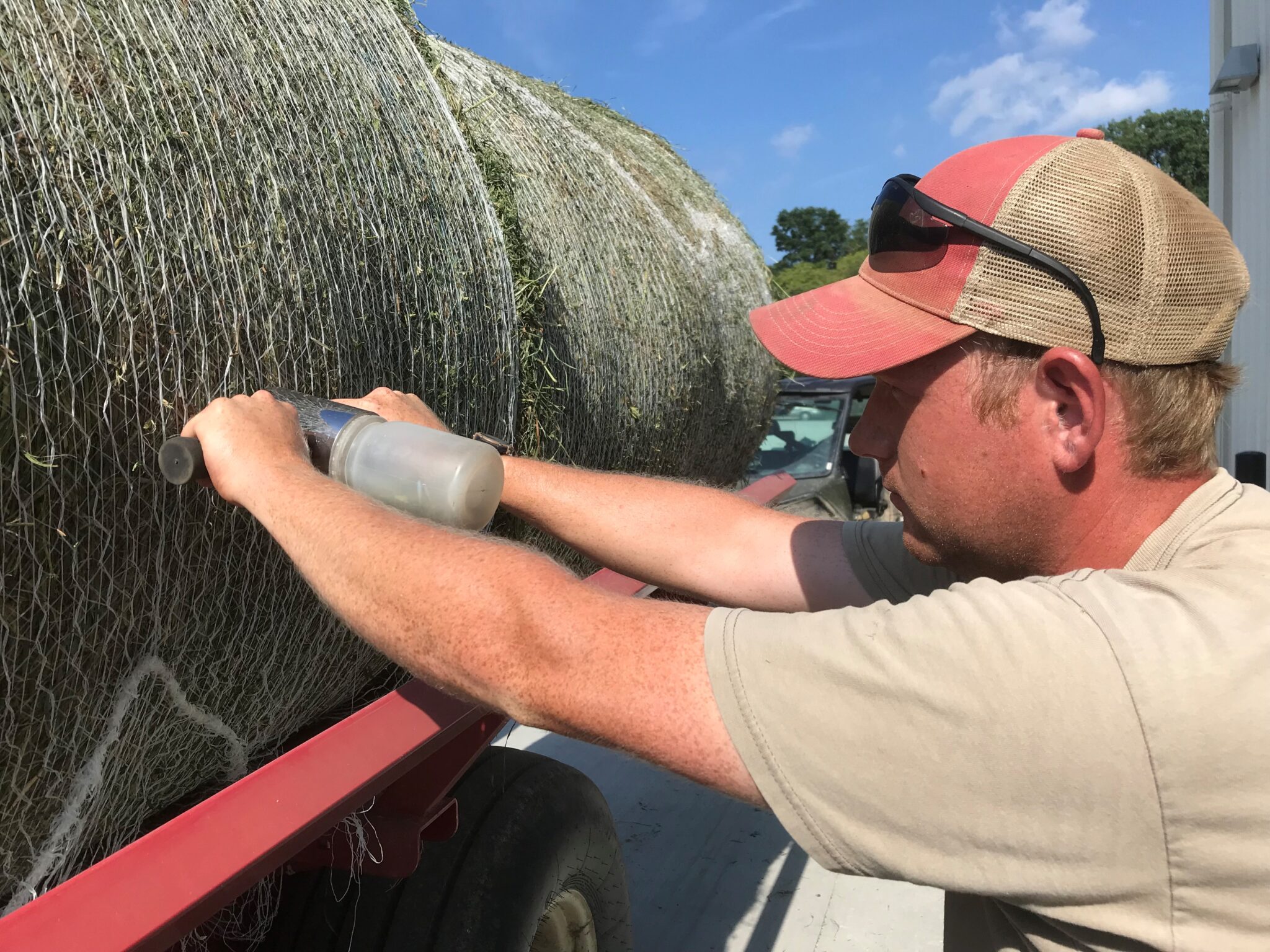
Hay harvest will soon be coming to a close for another year. It is important to now follow through and Sample, Test, Allocate, and Balance or STAB your hay. Doing the STAB is an important best management practice to keep your livestock healthy. Sample – Hay from each harvest from a field should be sampled with a hay probe. Many Purdue Extension offices have a hay probe to loan to sample hay. The website foragetesting.org has a list of hay probes that can be purchased for sampling hay. Twenty probings comprise a sample. Ten large bales are sampled twice on opposite sides of the curvature of a round bale and each butt end of a rectangular bale. One probing is taken from one butt end of each of twenty small rectangular bales to comprise a sample. Probings should be placed in a clean plastic bag that can be[Read More…]


